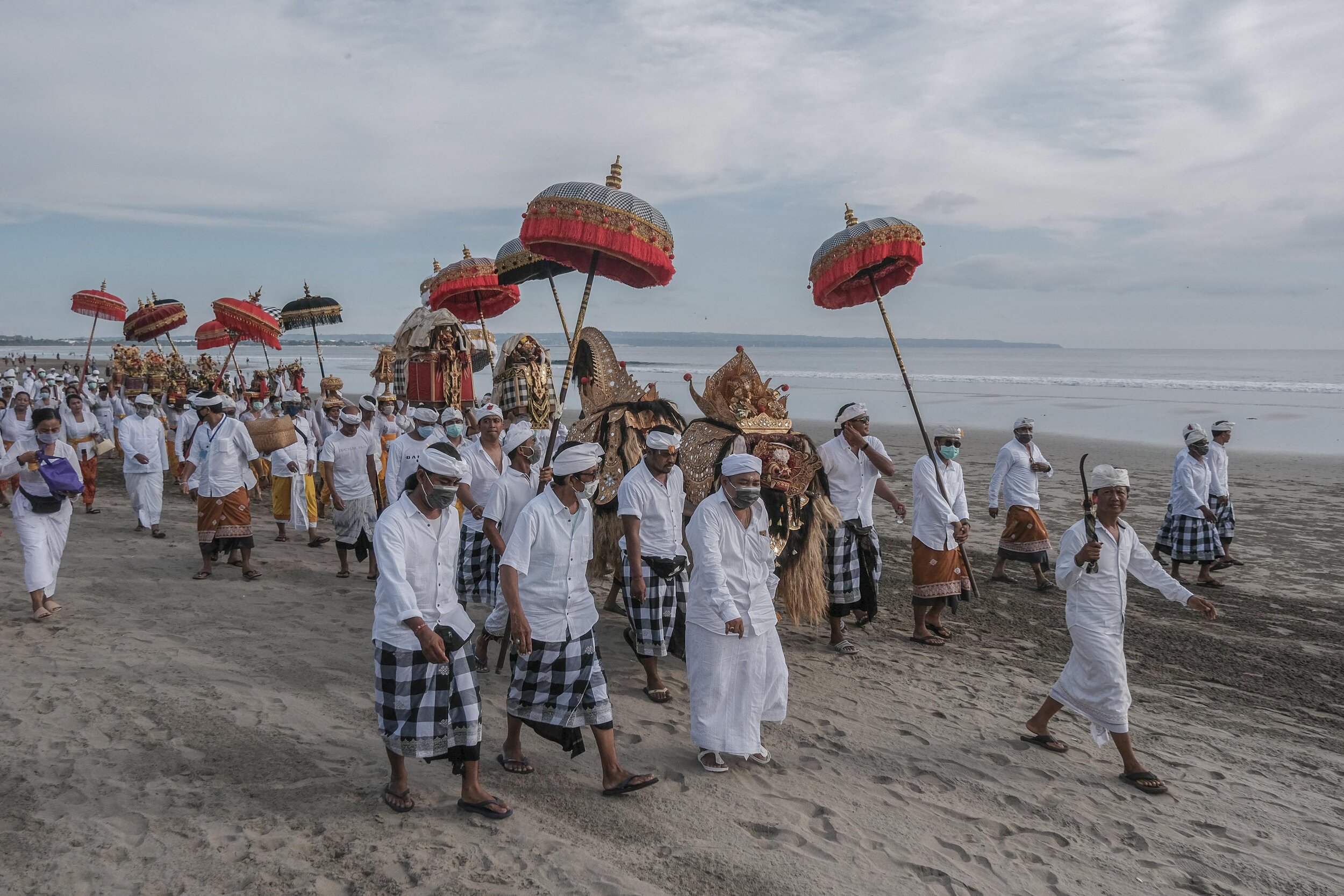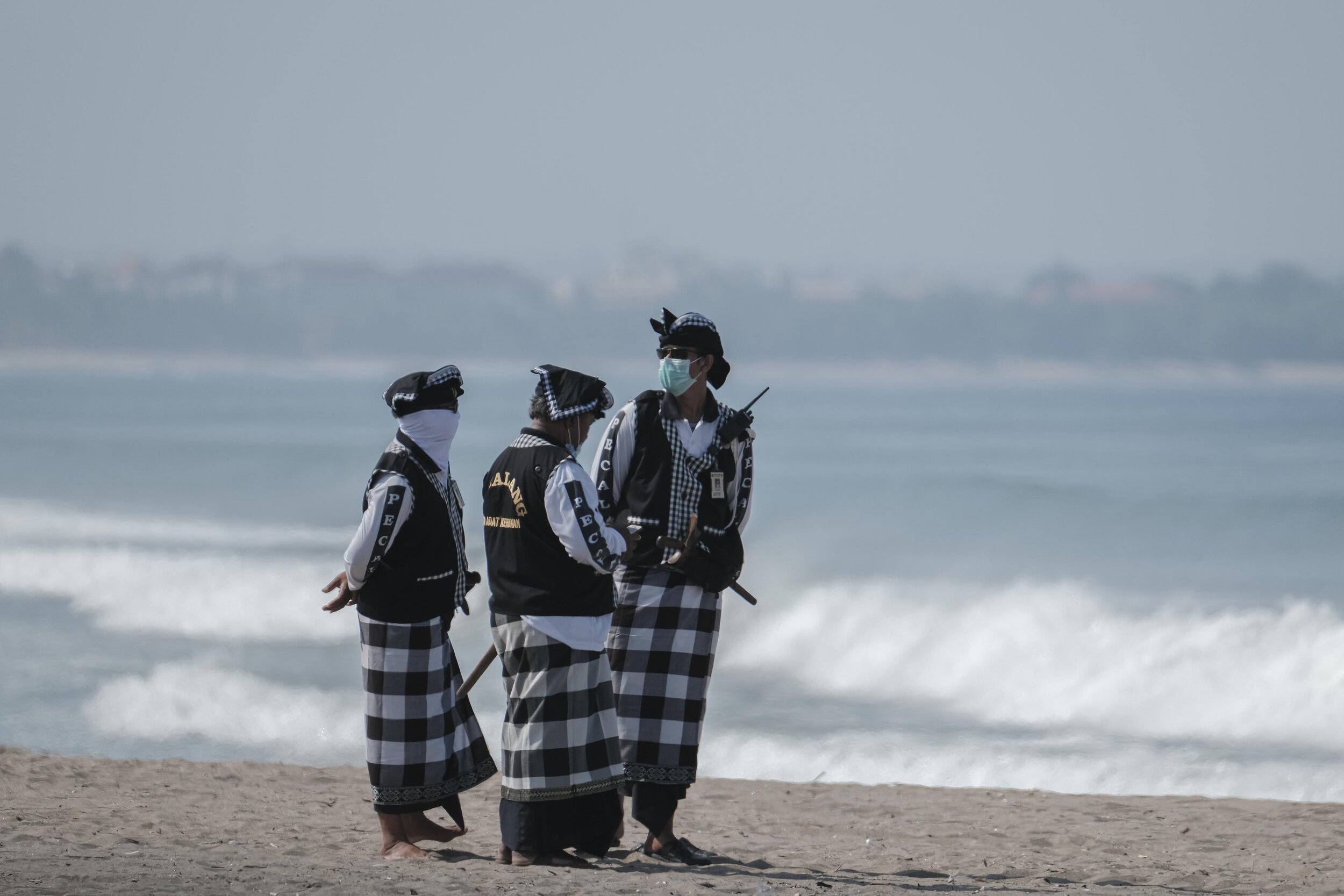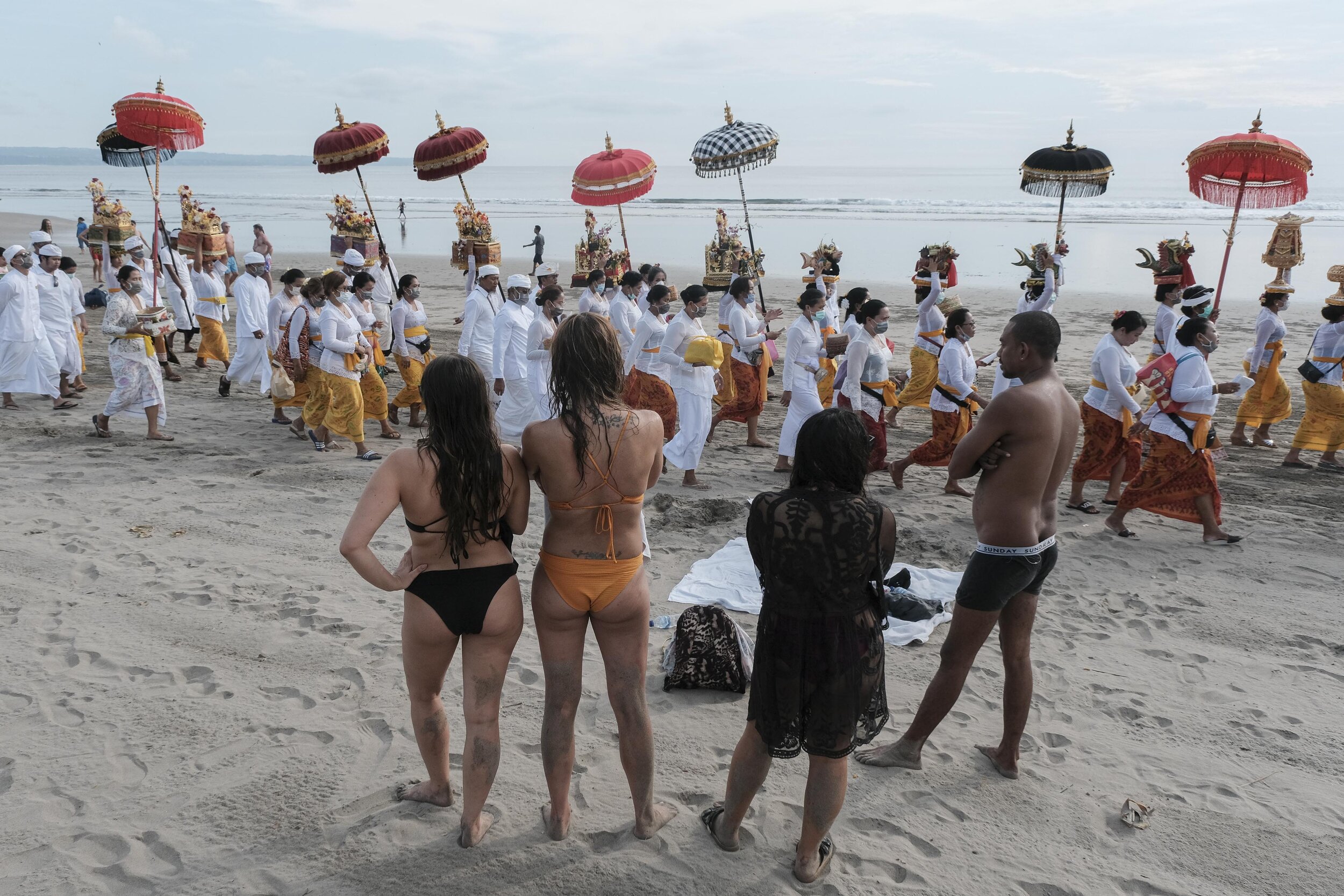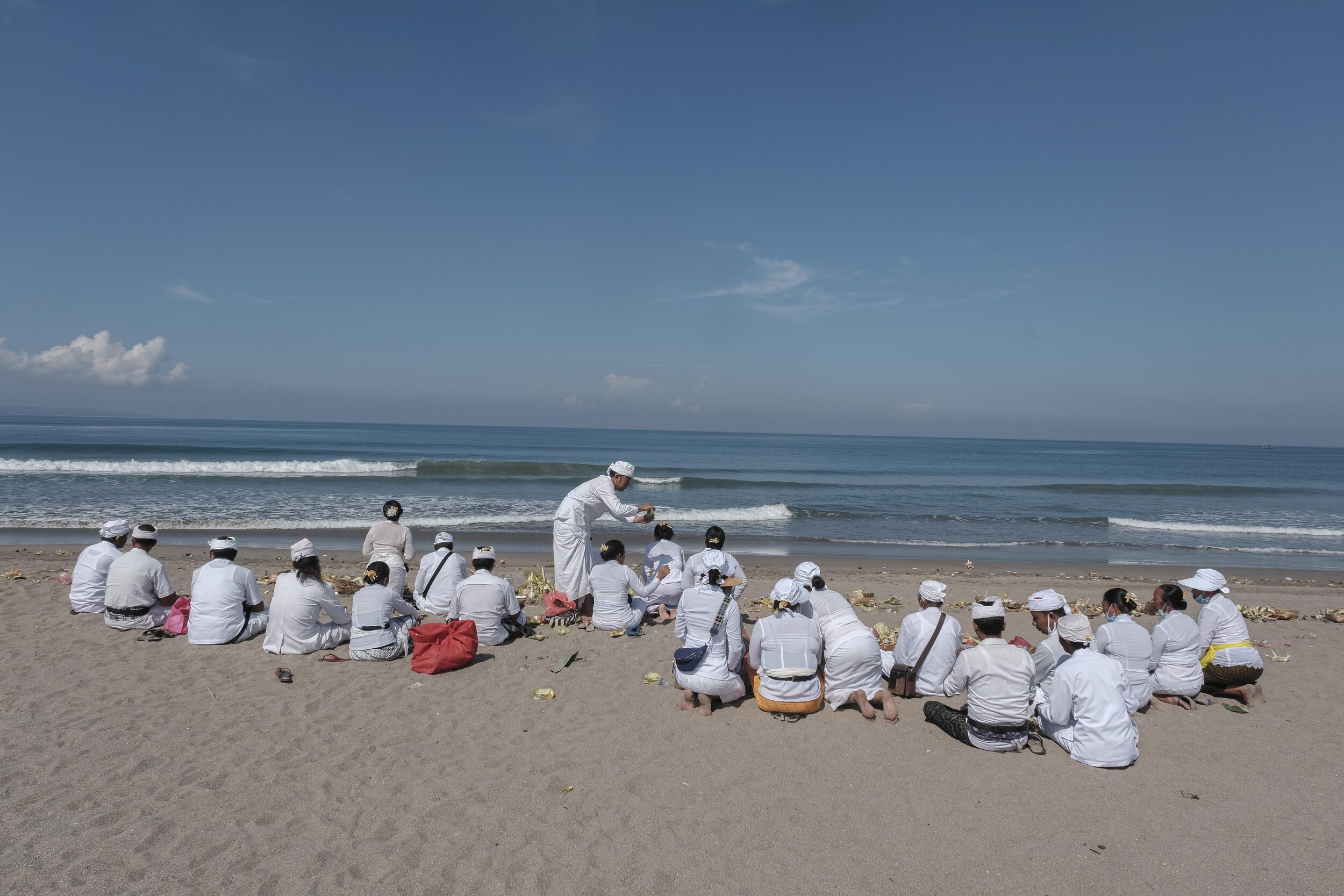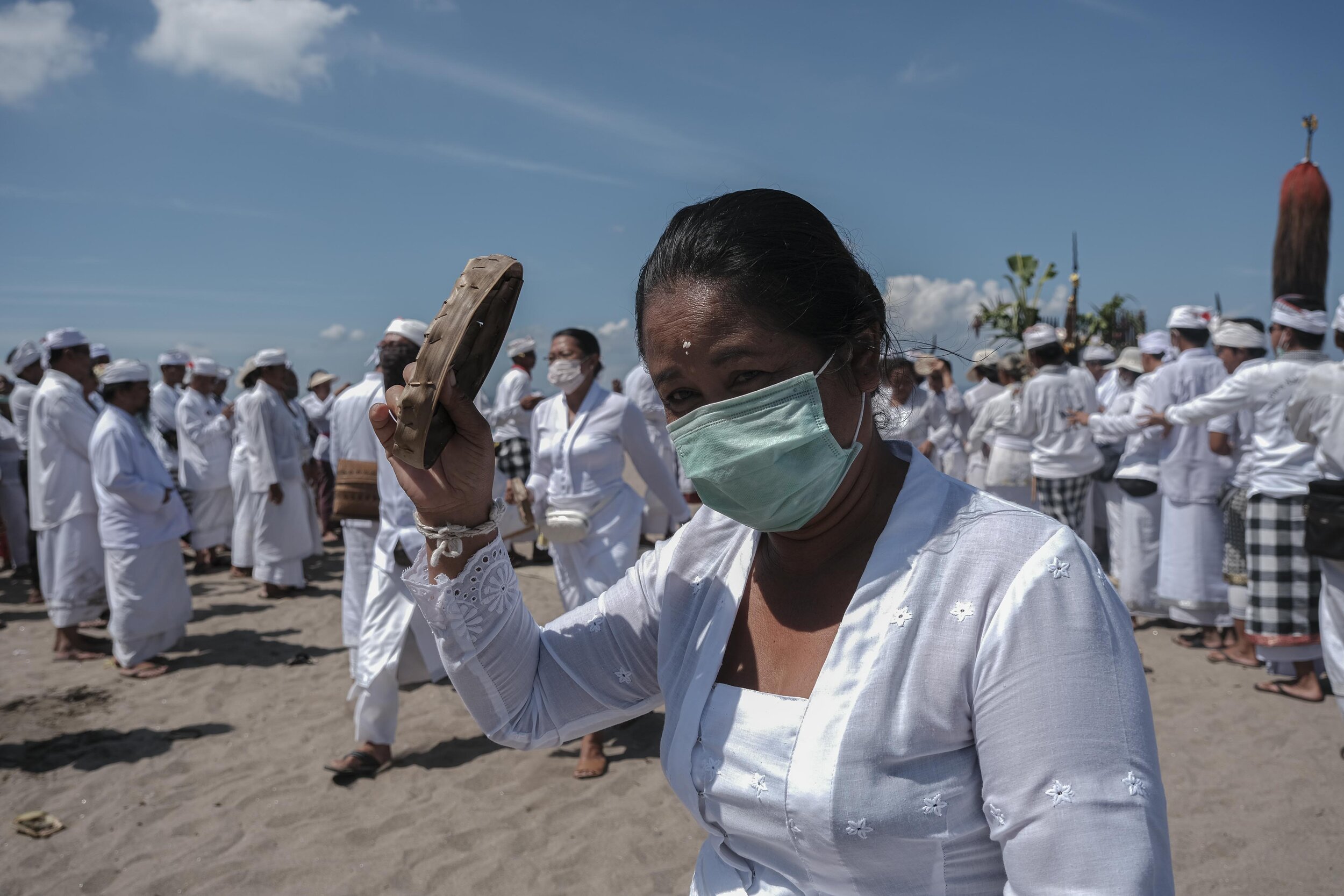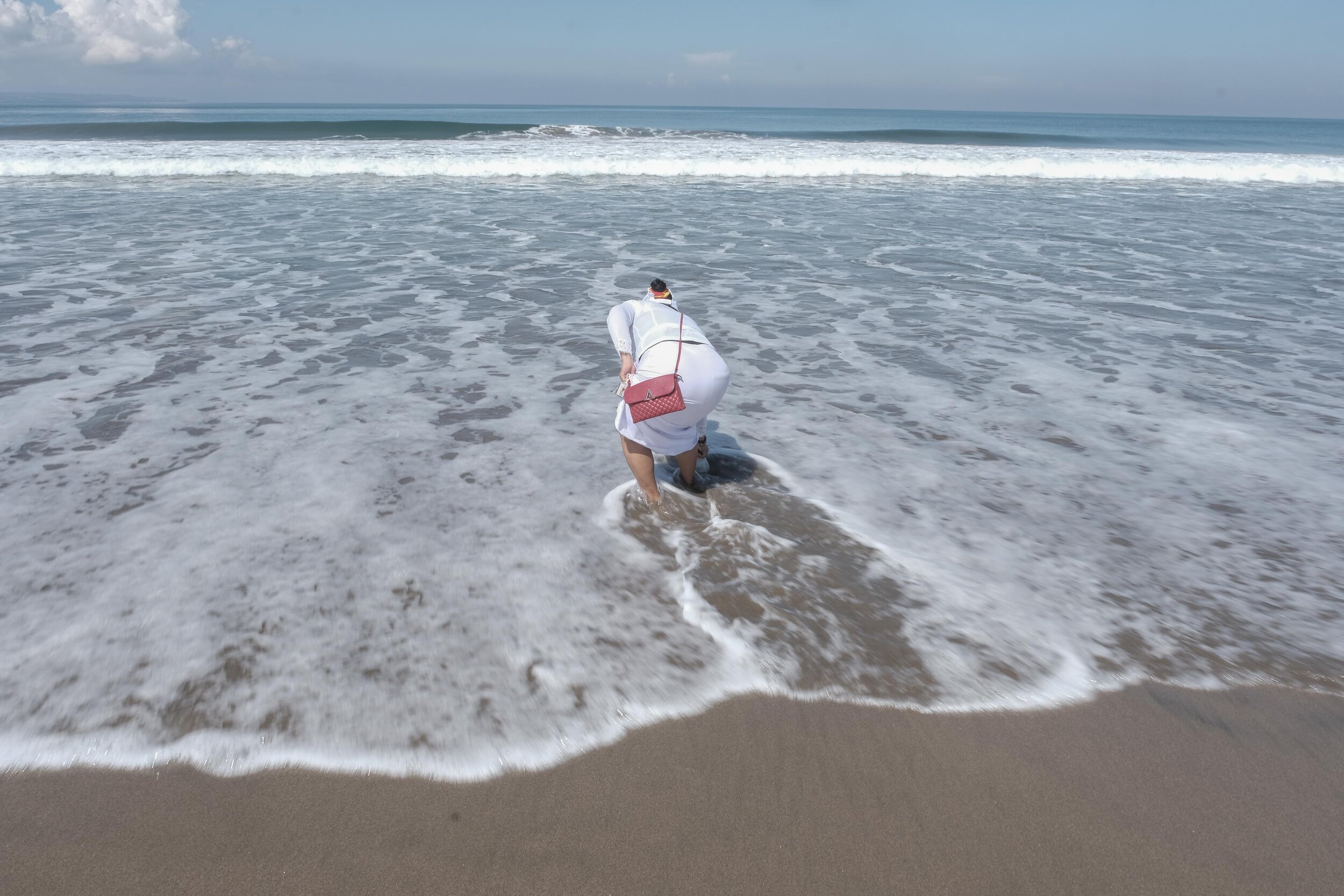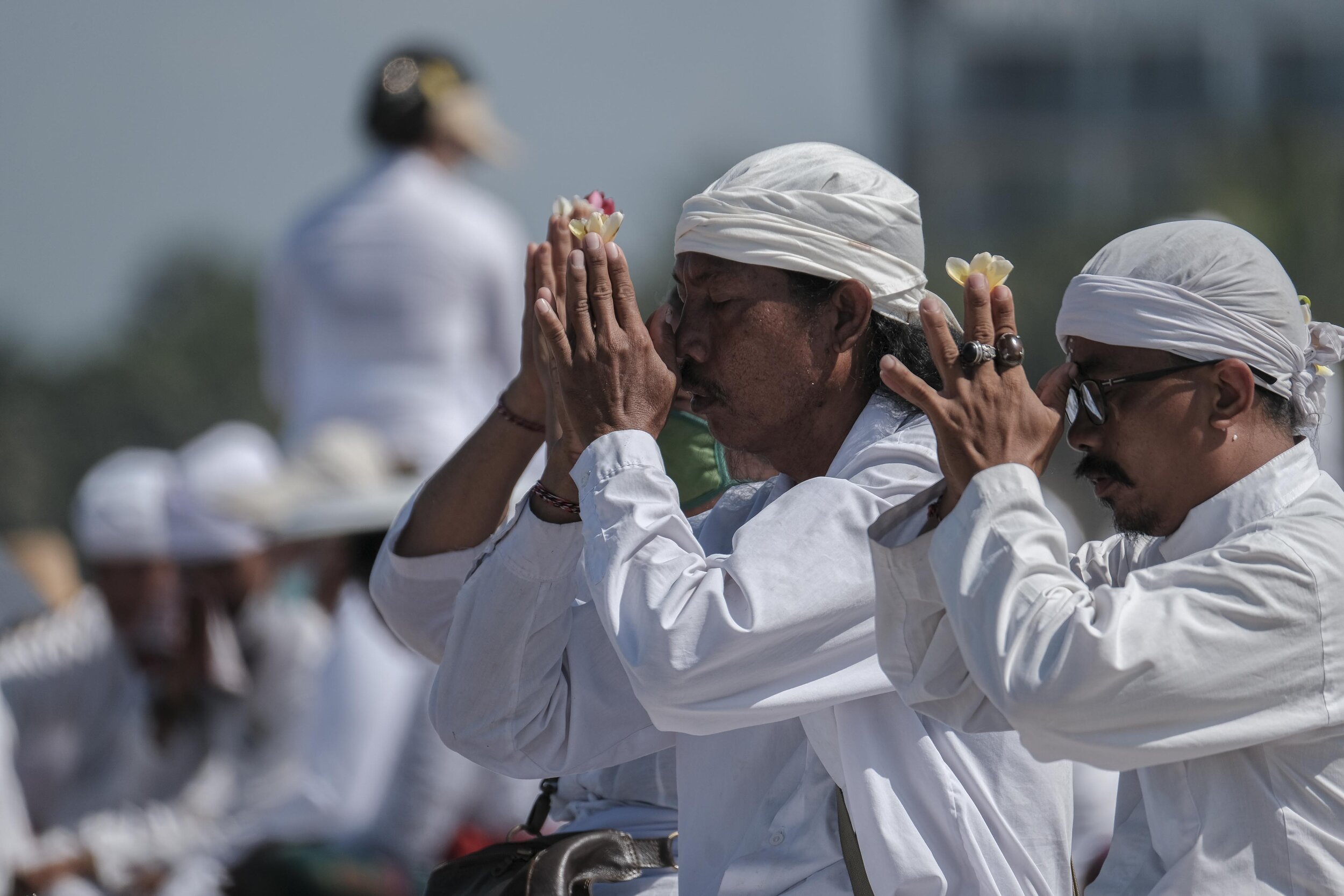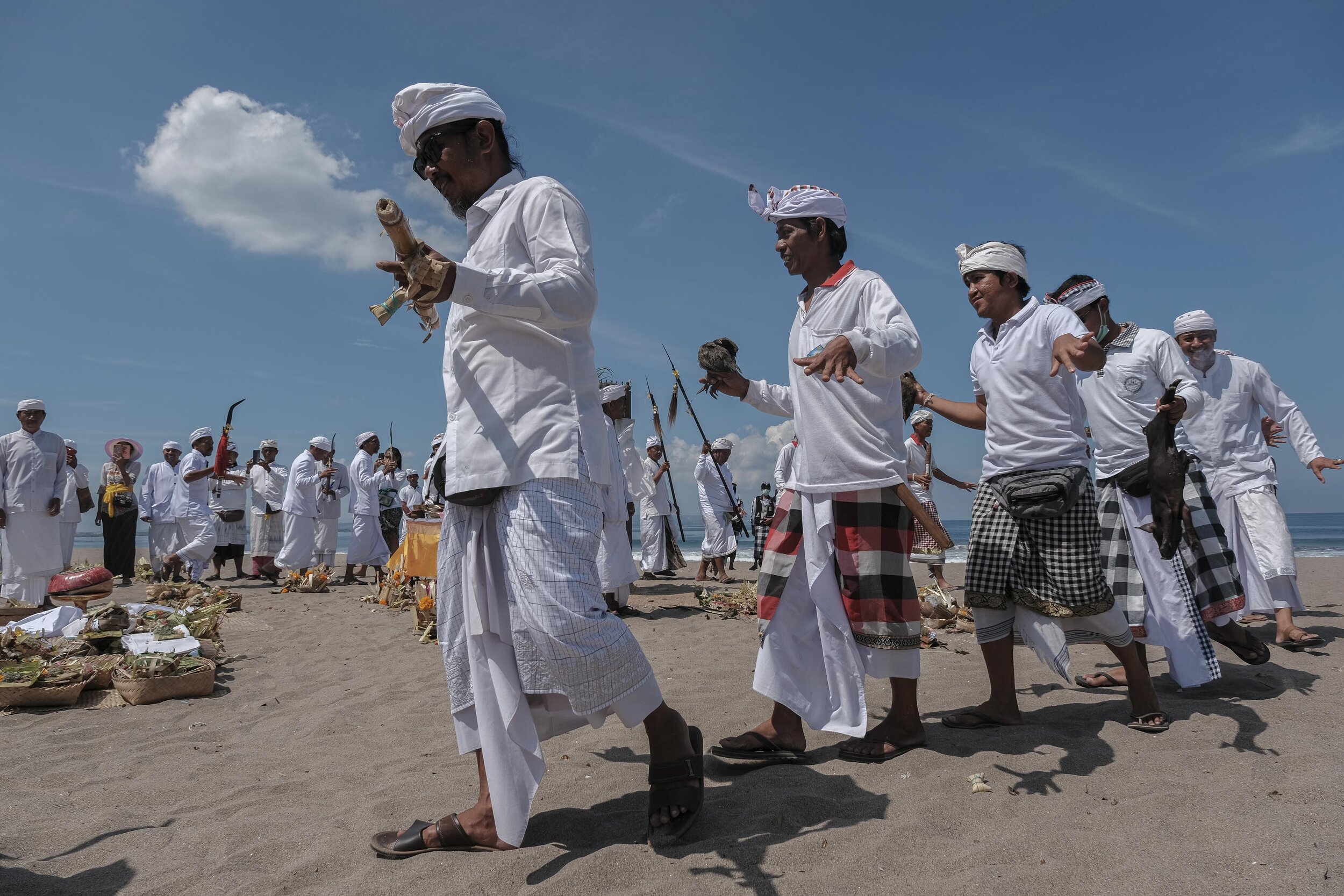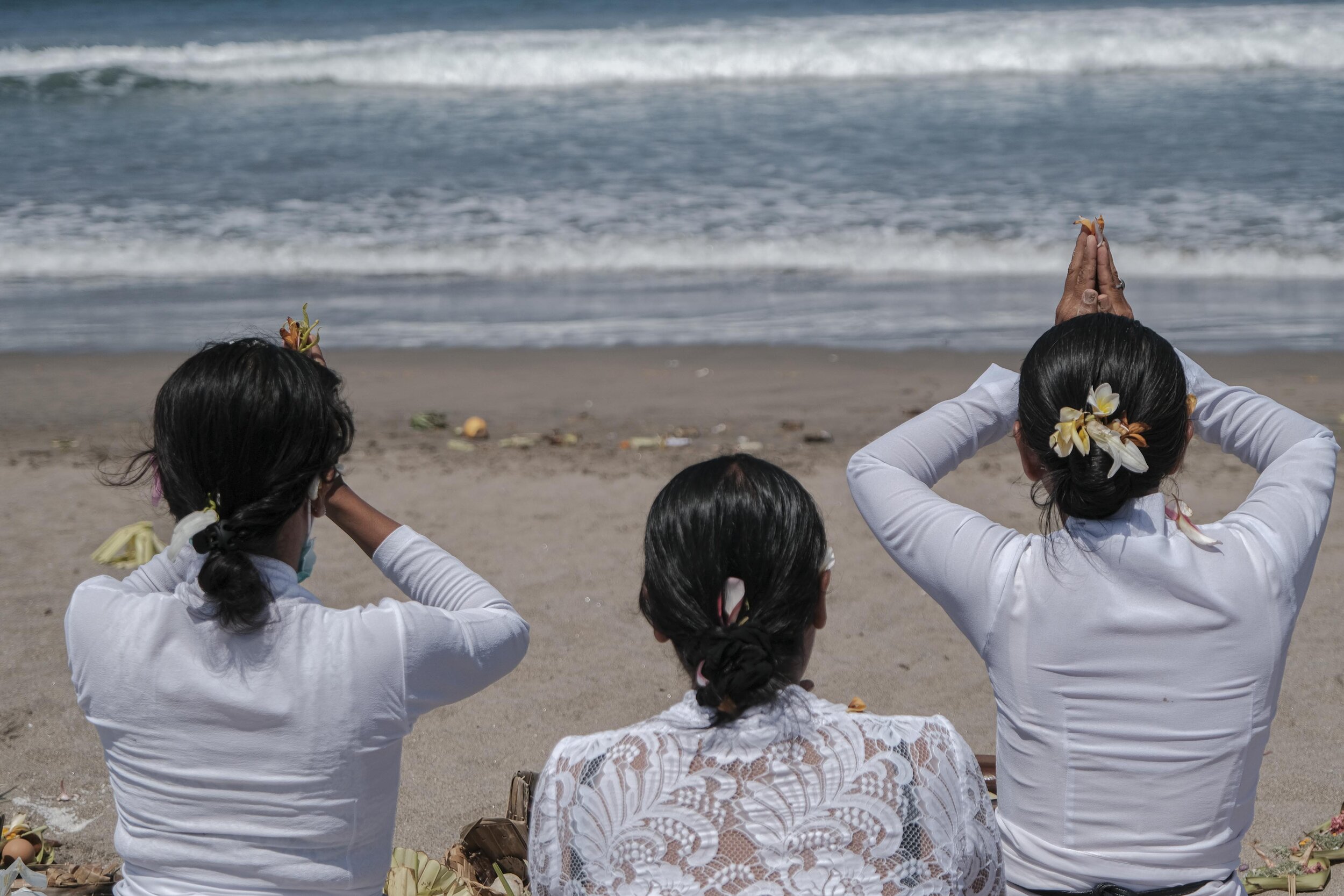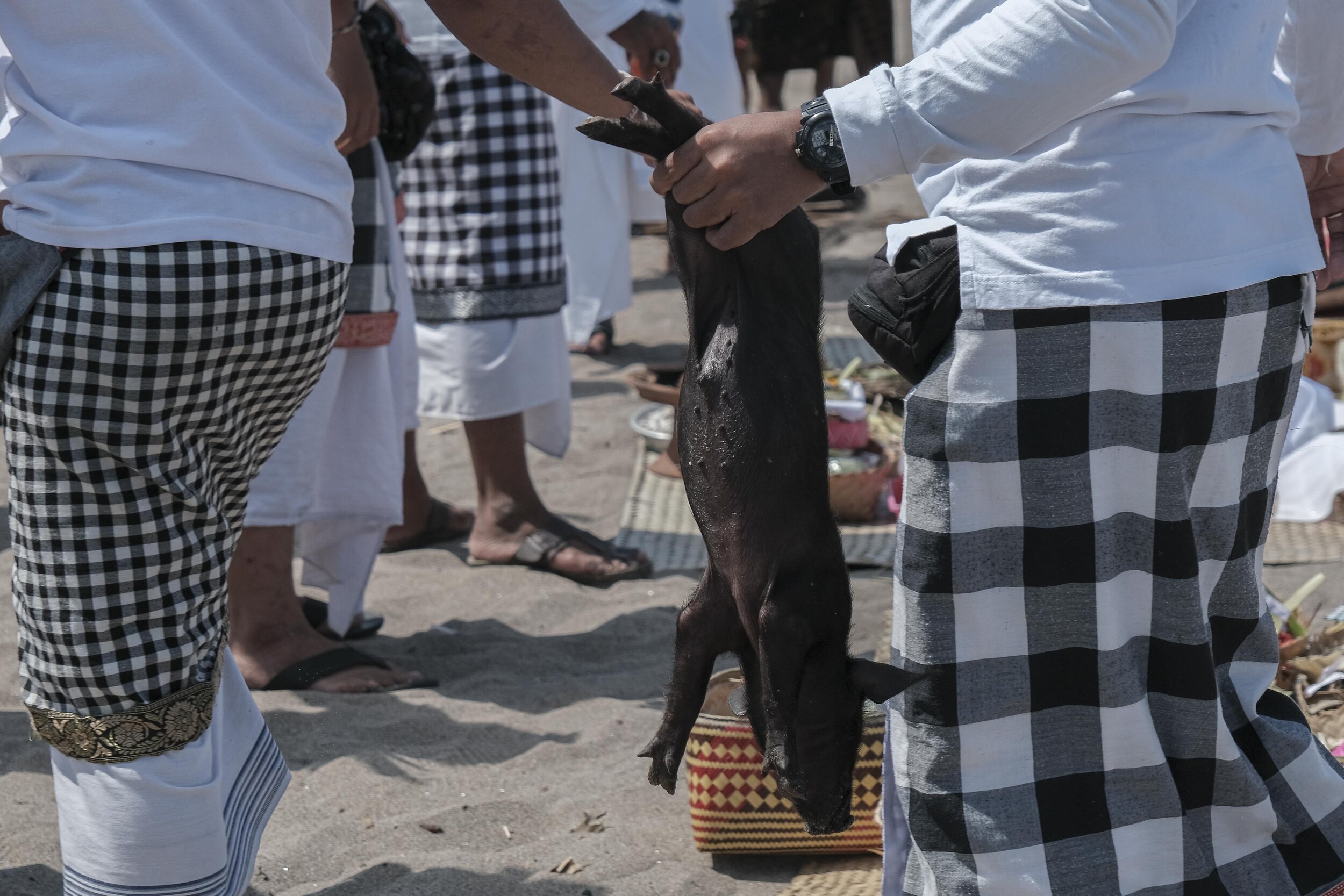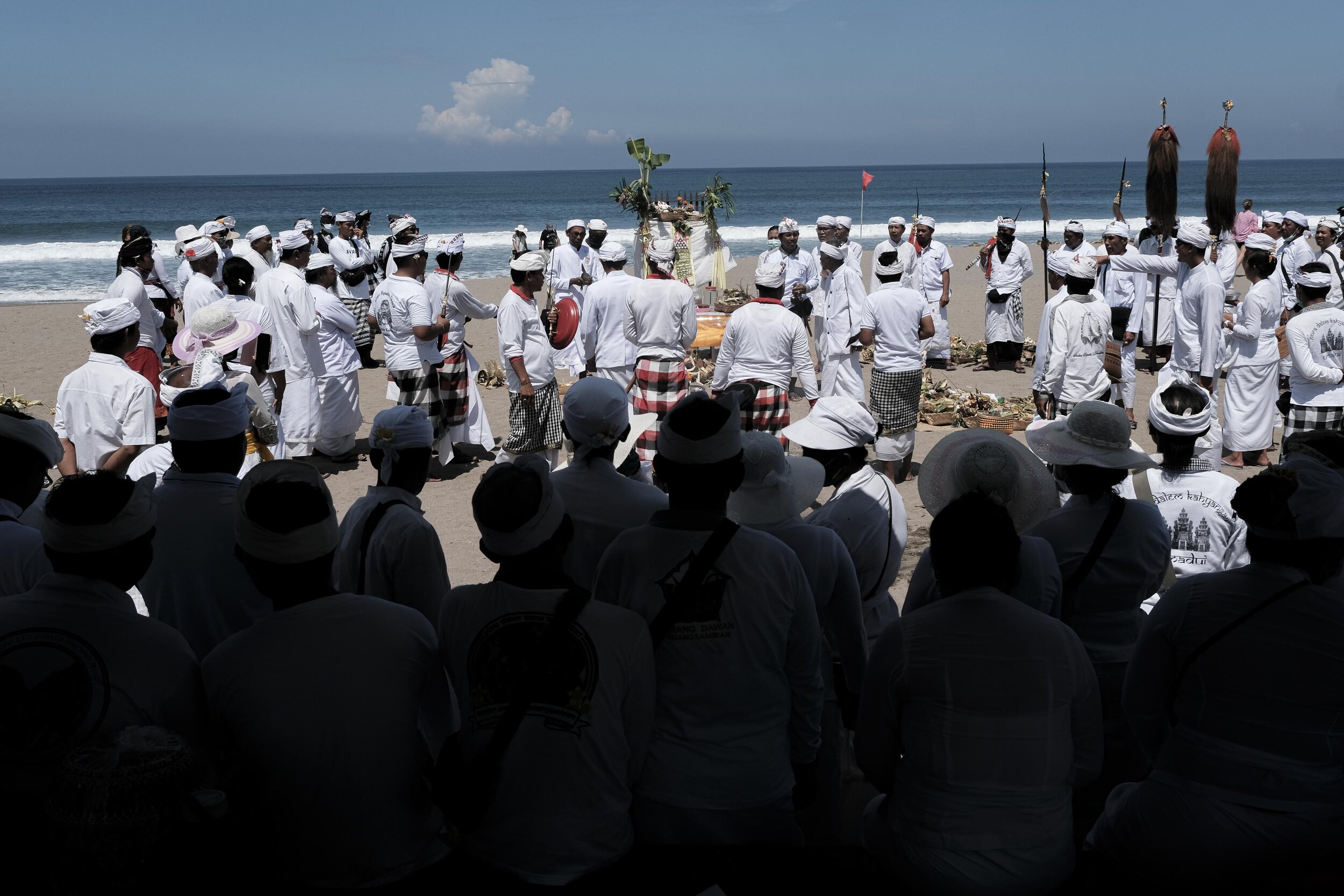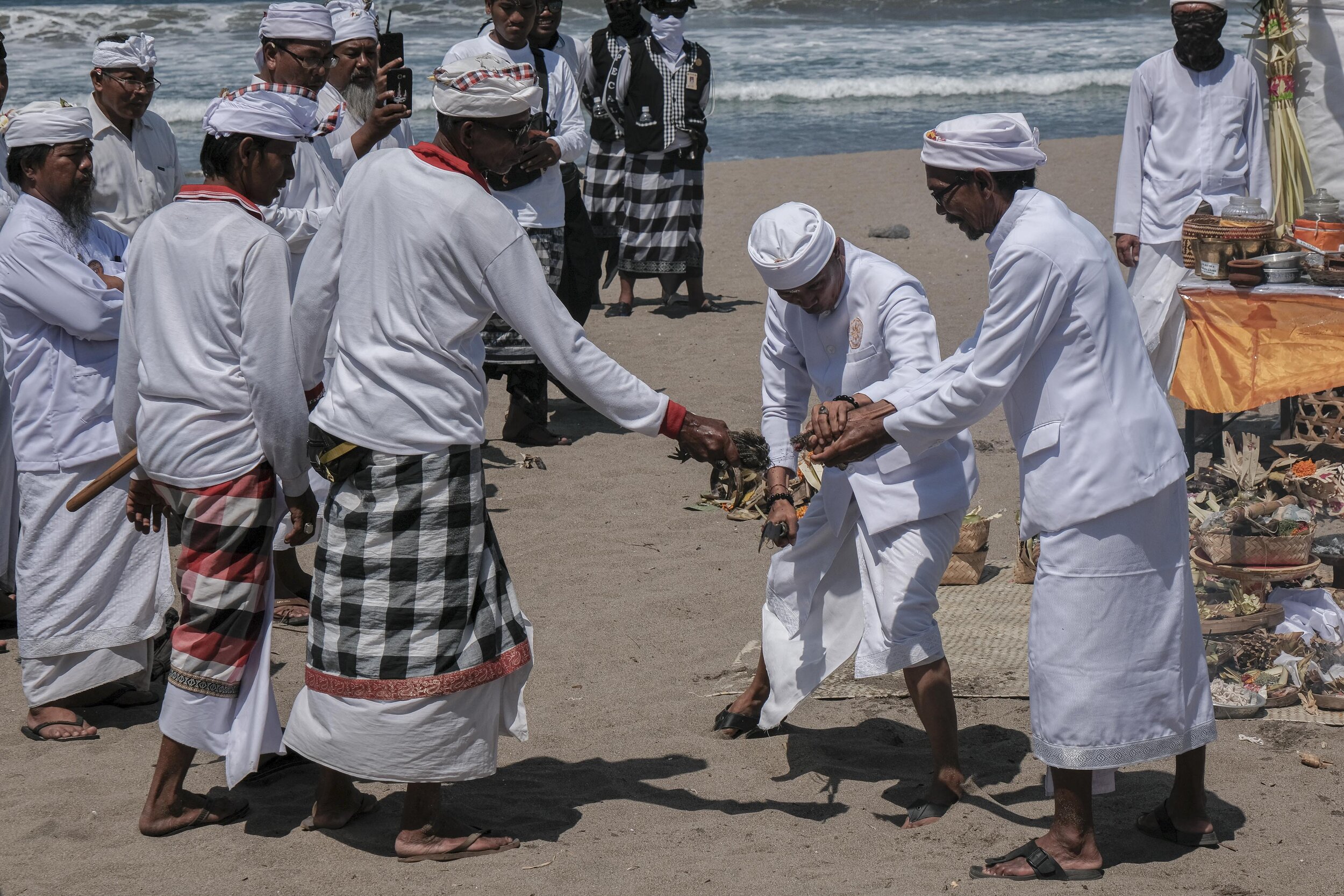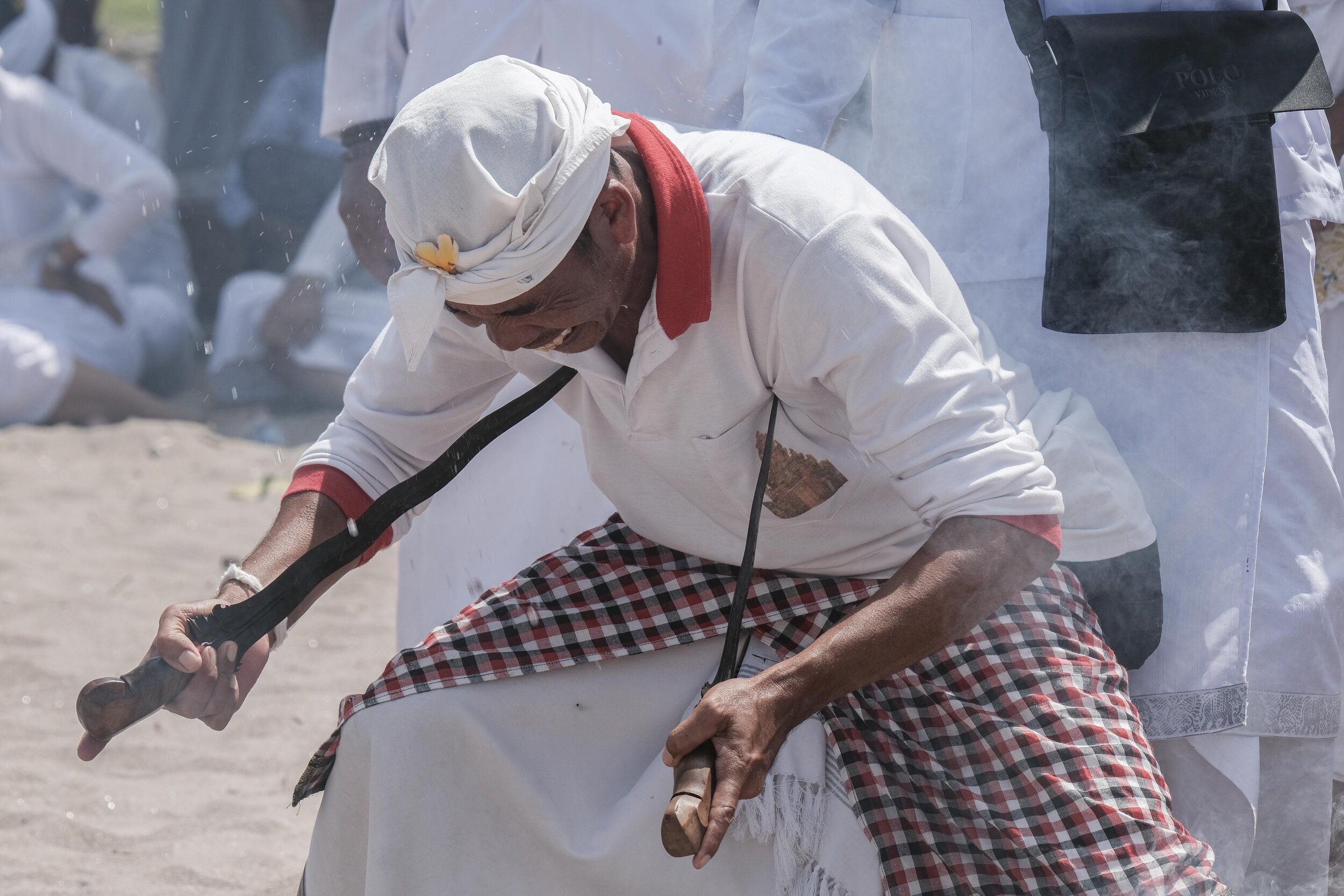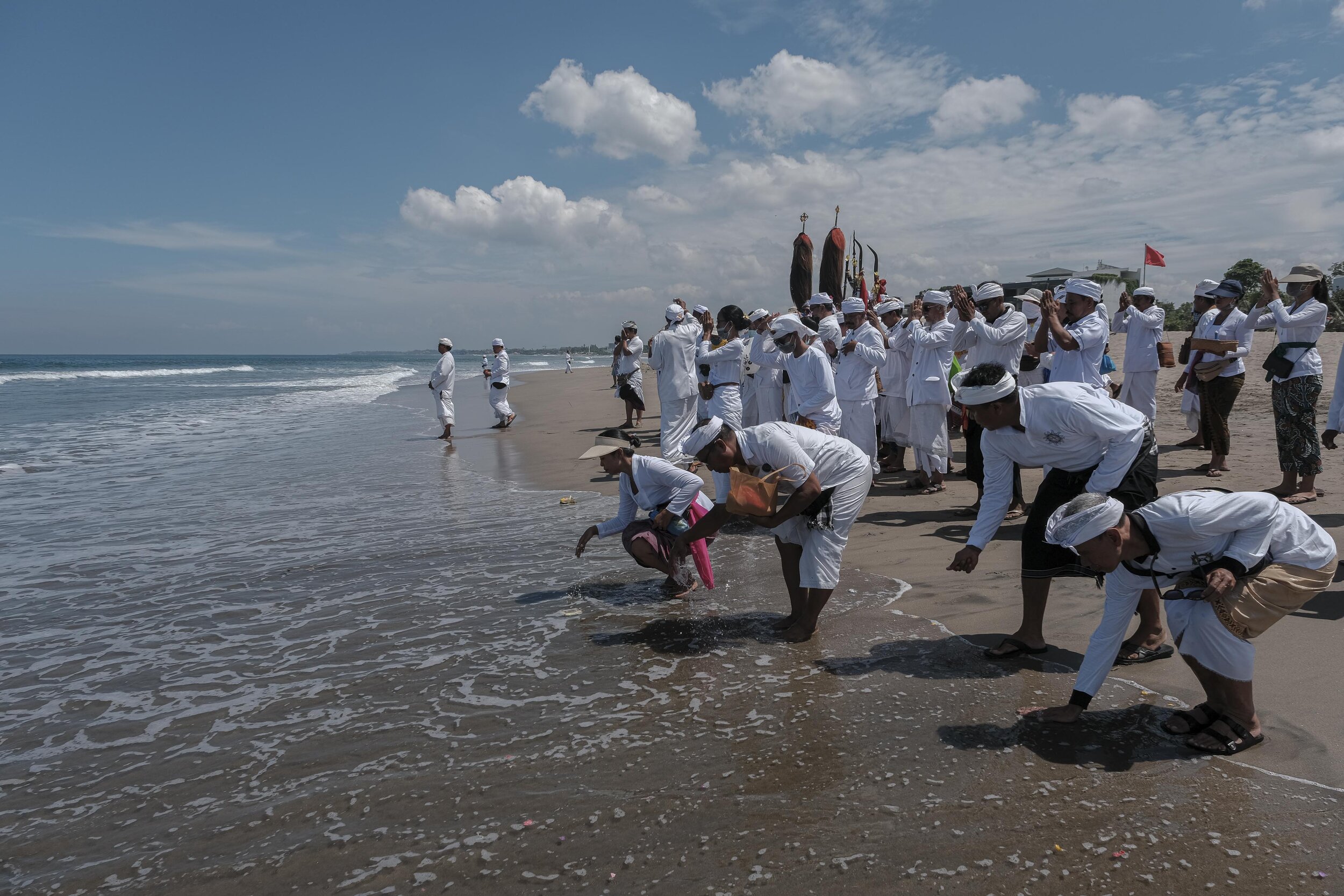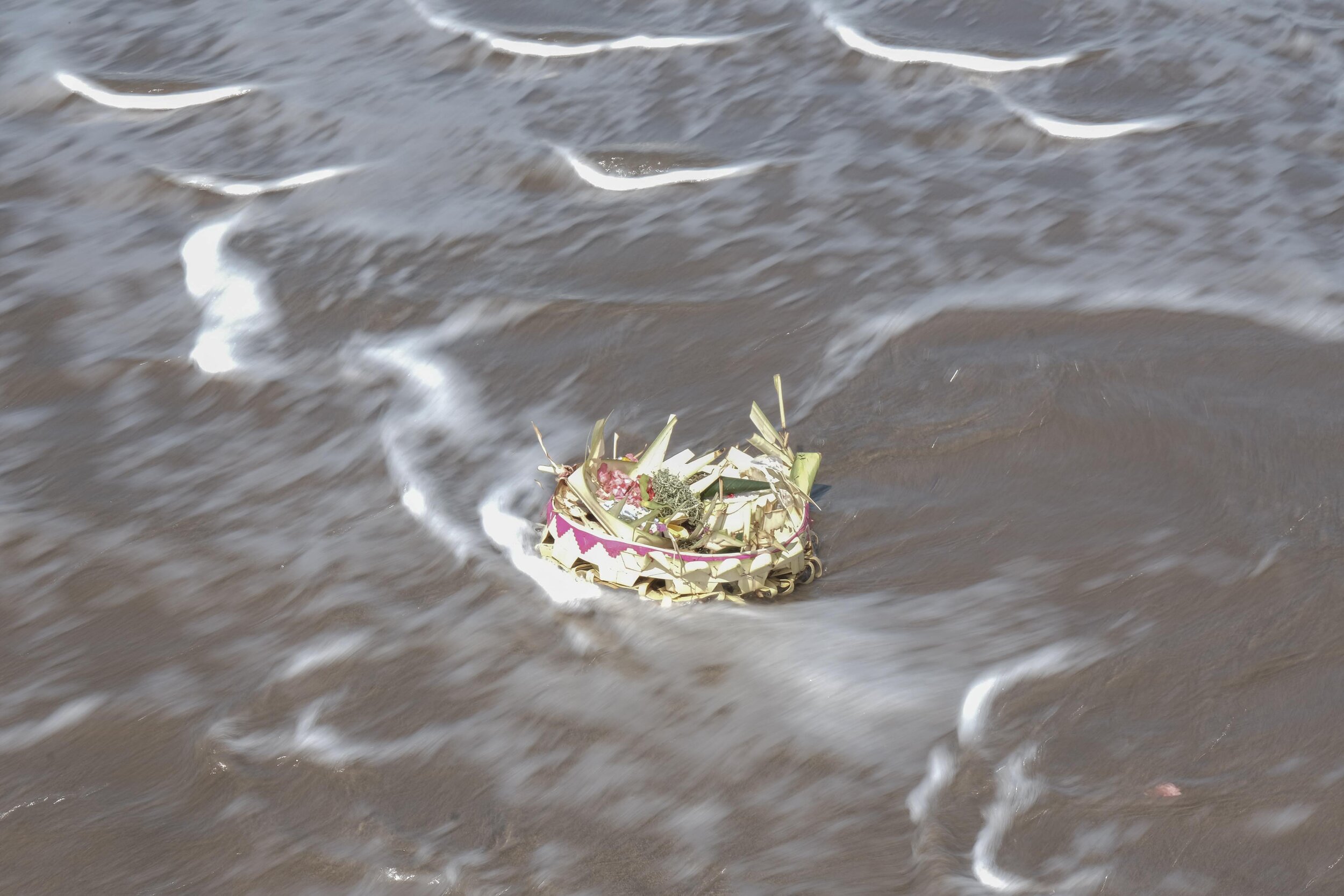In Photos: Balinese Hindus perform purification ritual amid pandemic
BALI, Indonesia — Authorities in Bali are allowing tens of thousands of Hindus to attend new year celebrations, with orders to limit the size of gatherings and an annual parade cancelled amid the spread of the novel coronavirus that has infected a confirmed nearly half a million and killed nearly 20,000 around the world in a few months. So far, the orders have had mixed results.
Nyepi Day, or The Day of Silence, is a Hindu new year celebration unique to Bali and is known for its annual lockdown of the island. For 24 hours, the festival looks a lot like social distancing measures: from 6 a.m. Mar. 25 this year until 6 a.m. the next day, they seclude themselves from others, refrain from lighting fires, rest from work, rest from travel and do not listen to or watch any entertainment (even the Internet is shut off). The philosophy is that Hindus ask God to purify the earth, including humans and the environment.
Indonesia is a Muslim-majority country but Bali has a concentrated Hindu-majority population that practices a local version of the religion.
The festival and its associated rituals draw thousands of foreign tourists each year, who are also prohibited from travel during the celebration. The airport and all other means of transportation on the small Indonesian island close. This week, thousands of foreigners who cannot or do not want to fly home to countries with more extensive coronavirus outbreaks formed long lines in crowded government buildings to renew their visas, increasing risks of infections on an island that has no testing facilities, Al Jazeera reported.
As of Mar. 23, only 71 people had been tested for the virus by sending samples to Jakarta, with six testing positive. Two people confirmed with the coronavirus, both foreigners, died.
Two or three days before Nyepi, the Balinese hold the Melasti ritual to purify themselves. They pray on the beach. According to Hindu belief, seawater is the holiest water, called Tirta Amerta or the water of life.
Following the advice of the Indonesian government not to gather in a crowd, the Bali government ordered people to hold Melasti simply and limitedly, without its normal parade and with 25 people or less participating in each village. Normally, nearly entire villages of thousands of people participate in the ceremony.
Several groups from various villages arrived at Petitenget Beach, Badung Regency, starting around 7 a.m. on Mar. 22. Some added protective masks to their traditional white attire for the occasion.
Each group brought various sacred objects used for prayer, including statues or weapons borrowed from the local temple where they worship. Usually, the items are paraded around the village first.
The Hindus also brought various offerings of fruit, flowers and rice placed in bamboo woven boxes. Some even brought chickens, ducks and pigs.
The ritual participants sat in a row facing the sea. An elder religious leader led the ceremony, starting by sprinkling water on the participants, then chanting various prayers. Usually, there are sounds from traditional musical instruments that accompany the ritual. This time there were none, in an effort to simplify.
The participants pushed their offerings to the edge of the sea as the waves lapped their feet gently and gradually picked up their offerings, pulling them further into the water. Some bent down to rub their faces with the seawater.
They hope that in the next year God will give them a better life.
Agoes Rudianto is a photojournalist based in Jakarta, Indonesia. His work has been published in Reuters, Anadolu Agency, South China Morning Post, The Diplomat and National Geographic Indonesia.

